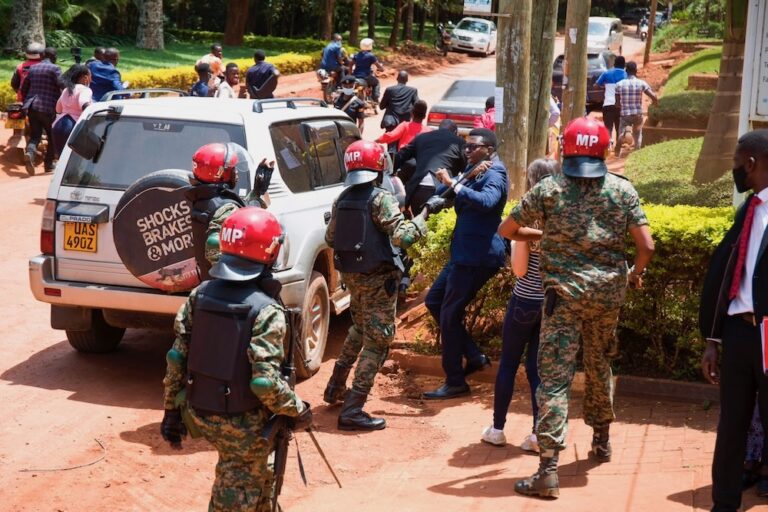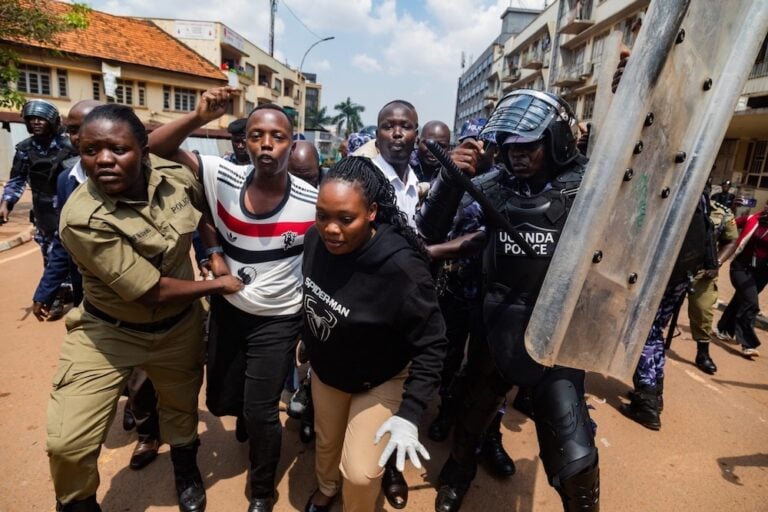(RSF/IFEX) – On 8 January 2003, RSF protested over the Ugandan government’s crackdown on live outdoor radio broadcasts of the views of ordinary Ugandans. “This is just a means of preventing people from debating national issues and making themselves heard,” RSF Secretary-General Robert Ménard said in a letter to Information Minister Basoga Nsadhu, while calling […]
(RSF/IFEX) – On 8 January 2003, RSF protested over the Ugandan government’s crackdown on live outdoor radio broadcasts of the views of ordinary Ugandans.
“This is just a means of preventing people from debating national issues and making themselves heard,” RSF Secretary-General Robert Ménard said in a letter to Information Minister Basoga Nsadhu, while calling on him to allow the broadcasts to continue.
On 2 January, Nsadhu specified that the licences allocated to radio stations only allow them to broadcast from their studios. The street broadcasts, known as “ebimeeza”, sprung up two years ago, when some stations organised round-table discussions outdoors and broadcast the results live. The “people’s Parliaments”, as they were nicknamed, have become very popular.
Among the stations affected are Radio One, Central Broadcasting Service and Radio Simba.


